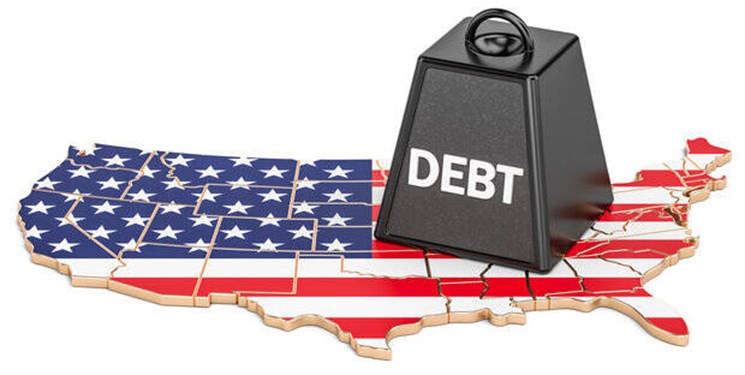US national debt exceeds $ 30 trillion.
US Treasury Department statistics show that US government debt exceeded $ 30 trillion ($ 30 trillion) for the first time today due to high borrowing during the Corona epidemic.
US national debt exceeds $ 30 trillion
According to the US Treasury Department, quoting Rashatoudi, US Treasury Department statistics show that public debt or US government debt due to high borrowing during the Corona epidemic, today, for the first time exceeded $ 30 trillion ($ 30 trillion).
Japan and China, each with $ 1.3 trillion and $ 1.08 trillion in US Treasury, respectively, remain the largest foreign creditors of the United States and are creditors of all the money borrowed from them.
The United States owes about $ 8 trillion to foreign institutions (excluding Japan and China), including Britain, Ireland, Brazil, Canada, France, India, Belgium, Taiwan, and Hong Kong.
The US government also owes $ 6.5 trillion to its Social Security and Military Pension Fund. During the Corona epidemic, the Federal Reserve doubled its balance sheet to $ 8.9 trillion, buying billions of dollars in treasury bonds and securities.
This figure shocked as US officials and economists could not predict the Corona epidemic and its aftermath, which has increased government spending and subsequent national debt by $ 7 trillion since the end of 2019. The donor was obtained much sooner than expected.
The US budget deficit for fiscal year 2021 totaled $ 2.77 trillion, slightly lower than last year’s record but still in line with Corona’s large spending.
According to the New York Times, the $ 30 trillion figure comes years earlier than previously anticipated because of government plans for a coronary epidemic that “provided massive unemployment benefits, financial support for small businesses, and wage payments.” “It’s over.” All of these plans have been repaid by borrowing and borrowing.
JP Morgan’s senior asset management strategist, David Kelly, told CNN that the debt meant the United States was “getting poorer in the long run” and that “American taxpayers have to pay pensions for people in China and Japan.” “Because they are creditors.”
However, Michael Peterson, chief executive of the Peterson Institute, explained: “The structural problems we are facing financially existed long before the epidemic,” and Corona only “exacerbated the problems.”









